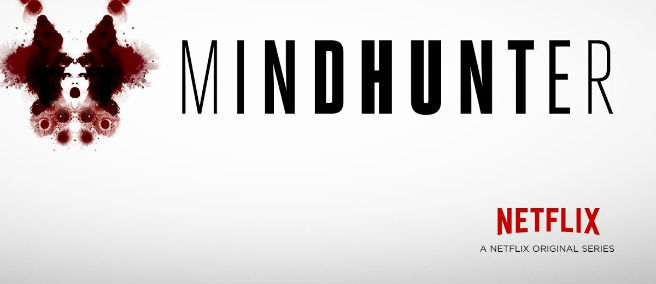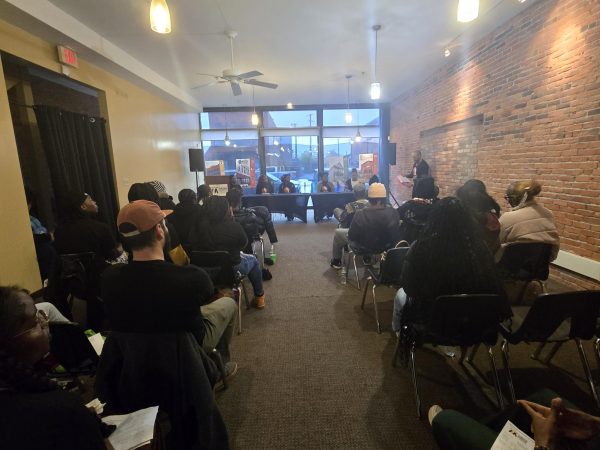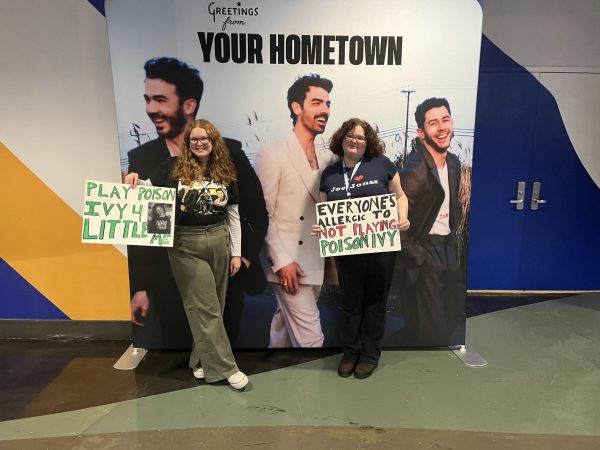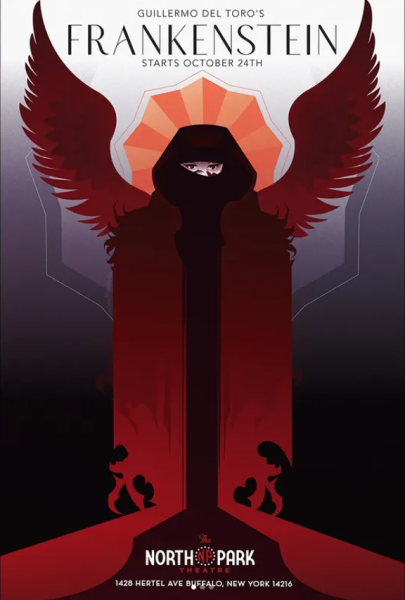Review: Netflix’s series ‘Mindhunter’ enters the minds of serial killers
At first, I was a bit skeptical. The actor cast for the lead role of this series, Jonathan Groff, had a stint as an important character in the final grueling seasons of the T.V. show “Glee”. I enjoyed “Glee”, but based off of his lackluster work in the downfall of the beloved show, a bad taste was left in my mouth. That quickly changed when I remembered that David Fincher, the mind behind “Fight Club”, “Seven”, and “Gone Girl” helped create and direct the first and last two episodes of this Netflix original show, “Mindhunter”.
Groff plays FBI agent Holden Ford, who stumbles into an unwavering obsession with the minds of serial killers. He is joined by his partner Bill Tench, played by Holt McCallany who comes from the FBI’s Behavioral Science Unit. Tench has a lovable, “I’m too old for this crap,” vibe. They are later joined by author Wendy Carr, played by Anna Torv who adds very intelligent dialogue to the gruff duo. This show is based on real people and real interviews, which makes it all the more interesting.
By interviewing some of the most vicious killers the world has known, these three examine what caused these murderers to kill and hope to document their explanations. Is it family issues, a fetish, or plain evil?
This show isn’t perfect, that’s for sure. There are parts and aspects that don’t work. This show definitely has times where it drags. There are a few episodes that don’t benefit from the hour length. Scenes with legal talk are boring and can almost be called unnecessary. The first 40 minutes of episode one are a bit rough and if someone hasn’t been looking forward to this show like I was, it could deter them from watching further. There is also at least one story line involving a school principal that seemingly comes out of nowhere.
In this plot point Ford helps a group of concerned parents with a ticklish principal. I use ticklish literally because the principal was tickling his students and then giving them nickels. This is absolutely something that in real life an FBI agent like Ford should stop, but for the purposes of this show it has nothing to do with his research into the minds of serial killers. It serves little purpose to the overall story but serves major purpose when revealing the personal evolution of Groff’s character Holden Ford. This is exactly the kind of thing that happens multiple times throughout the series. Plot points are somewhat forced to further the growth of the characters.
It’s hard to pinpoint exact moments of weakness in this show because with weakness in a certain story line there is also strength from that very same story line. I think the positives outweigh the negatives in this series. The writing is superb, there was never a time where I felt that dialogue wasn’t written well even if it wasn’t needed. It was always written and performed superbly. At times when I felt like an episode was dragging it seemed to pick up at the end. This seemed to happen often, the ending of an episode redeemed slow parts form within that episode.
The greatest parts of this show are the scenes when Ford and Tench interview the serial killers. Tension and beautifully written monologues make this show so engrossing. These scenes where men describe why they murdered and then how they murdered innocent civilians make every ounce of your being shiver in unwanted excitement. You may not want to keep watching, but you can’t stop.
Throughout the series, we see how each character grows in their own specific way. This is most evident in Holden Ford. He evolves with each interview and each case he is a part of. This series sucks you into a sick and grueling world that is just so fascinating. This isn’t a series that you can’t just put on in the background as you do homework or other things. Take time to sit down and really allow yourself to fully take on each line of dialogue and each character’s evolution. A definite recommendation from me.
A fun game you can play while watching this is to try to figure out who the man is at the beginning of each episode, after episode one. Try not to look it up until after the series if you can’t figure it out.











